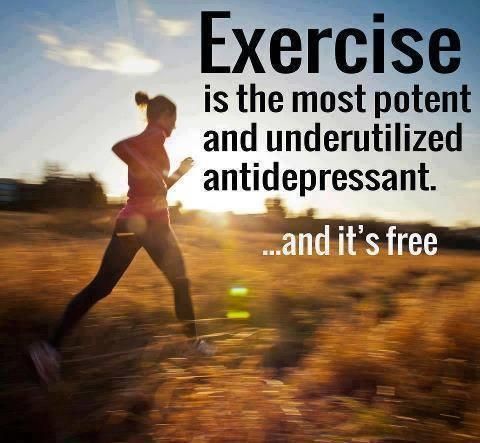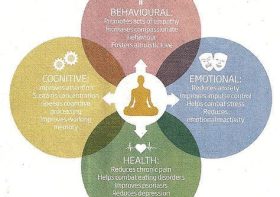Overcoming Depression through Physical Activity

Depression is a mental health disorder that affects millions of people worldwide. While there are various treatment options available, one often overlooked and highly effective method is physical activity. Engaging in regular exercise and physical activities can significantly help individuals in overcoming depression.
The Science behind Exercise and Depression
Exercise has proven to be a powerful tool in combating depression, as it stimulates the brain’s production of endorphins, also known as the “feel-good” hormones. These endorphins help reduce feelings of sadness, anxiety, and stress, promoting overall mental well-being. Additionally, physical activity increases the brain’s production of neurotransmitters like serotonin and norepinephrine, which play crucial roles in regulating mood.
Benefits of Physical Activity in Depression
1. Mood Enhancement: Engaging in physical activity leads to a boost in mood and improves overall emotional well-being. Regular exercise helps combat feelings of depression, reduces anxiety, and promotes a positive outlook on life.
2. Stress Relief: Physical activity acts as a natural stress reliever. Exercise helps increase the body’s production of endorphins, which combat stress and enhance relaxation. Regular workouts can reduce feelings of tension and boost resilience against stressors.
3. Increased Self-confidence: Depression often dampens self-esteem and confidence. Engaging in physical activity helps individuals regain their confidence by setting and achieving goals, improving physical fitness, and enhancing body image. These accomplishments contribute to improved self-worth and a positive self-image.
4. Social Interaction: Exercise provides opportunities for social interaction, whether through joining fitness classes, sports teams, or group activities. Building connections with others who share common interests and goals can significantly reduce feelings of isolation and loneliness, which often accompany depression.
Choosing the Right Physical Activities
When it comes to exercising for overcoming depression, it is important to choose activities that you enjoy. Finding activities that are enjoyable helps ensure consistency and increases the chances of incorporating exercise into your regular routine. Some options to consider include:
1. Aerobic Exercises: Activities such as running, swimming, cycling, or dancing not only improve physical fitness but also have immense positive effects on mental health. Aerobic exercises increase endorphin levels, elevate mood, and reduce anxiety.
2. Yoga and Meditation: These activities combine physical movements, deep breathing, and mindfulness practices. Yoga and meditation have been shown to reduce depressive symptoms, improve relaxation, and enhance overall well-being.
3. Team Sports: Engaging in team sports offers the added benefit of social interaction. Joining a sports team or recreational league allows individuals to connect with others and experience the positive effects of both physical activity and social support.
Establishing a Routine
Consistency is key when using physical activity to combat depression. Start slowly and gradually increase the duration and intensity of your workouts. Set achievable goals and make a schedule that incorporates exercise into your weekly routine.
Additionally, find an exercise buddy or join group classes to enhance motivation and accountability. It is also important to listen to your body and not overexert yourself. Remember that regular physical activity is a long-term commitment that should be enjoyable and sustainable.
Seeking Professional Help
While physical activity can be highly beneficial in overcoming depression, it is essential to seek professional help if depressive symptoms persist or worsen. Mental health professionals can provide additional guidance and recommend personalized treatment plans that may combine therapy, medication, and physical activity.
Conclusion
Physical activity offers a natural, holistic approach to combatting depression. By engaging in regular exercise, individuals can experience mood enhancement, stress relief, increased self-confidence, and improved social interaction. It is important to choose activities that you enjoy, establish a routine, and seek professional help if needed. Remember that overcoming depression is a journey, and incorporating physical activity into your life can be a powerful step towards healing and well-being.


